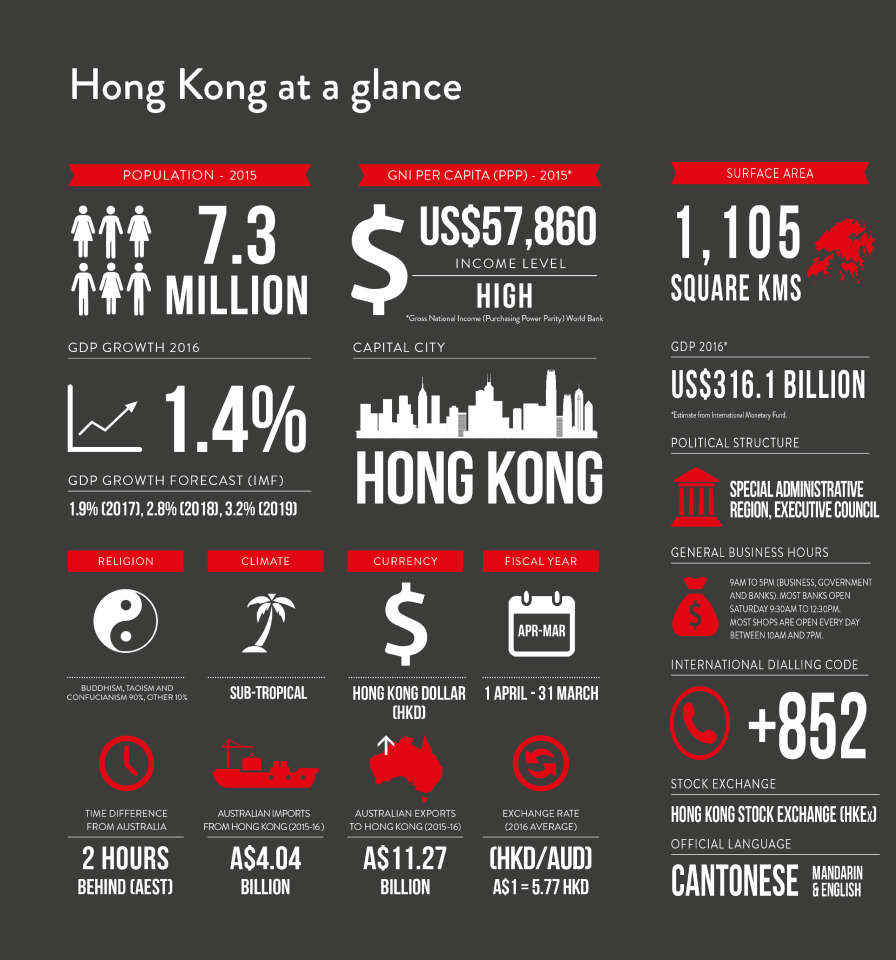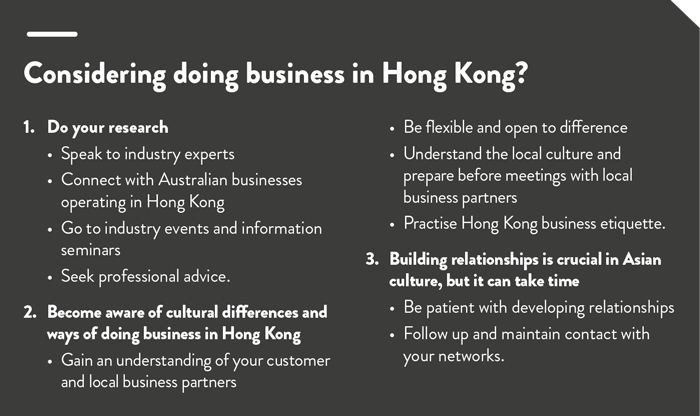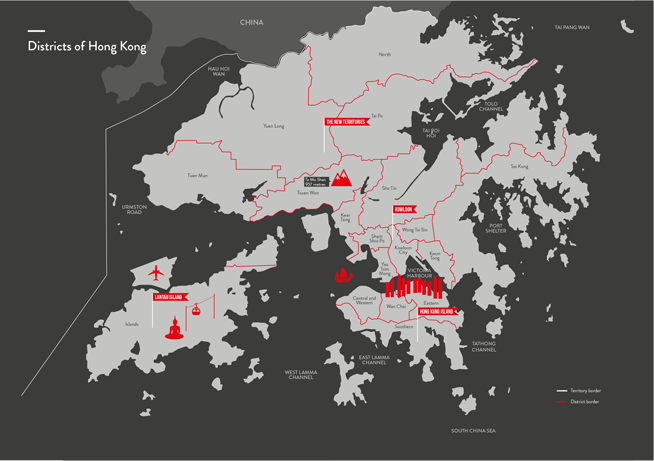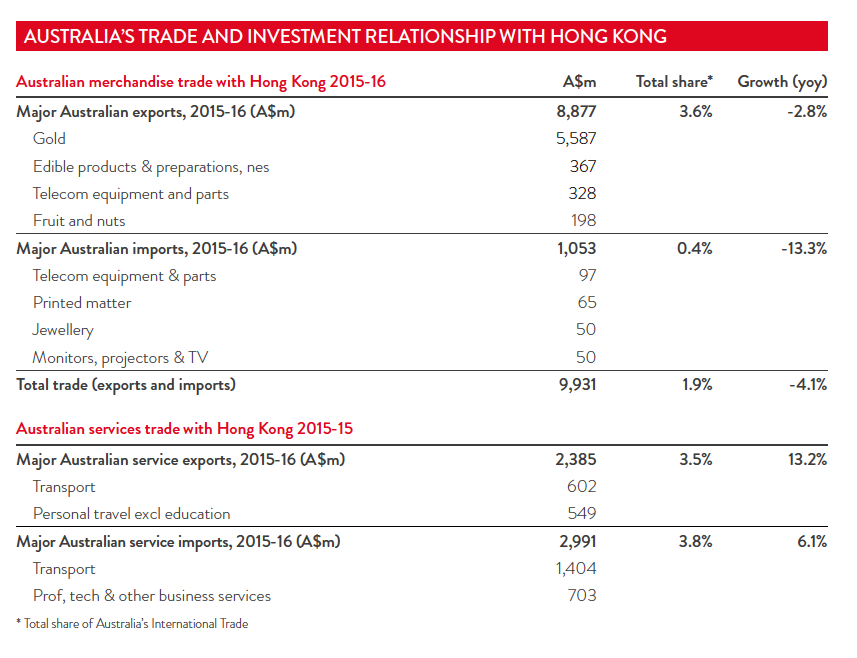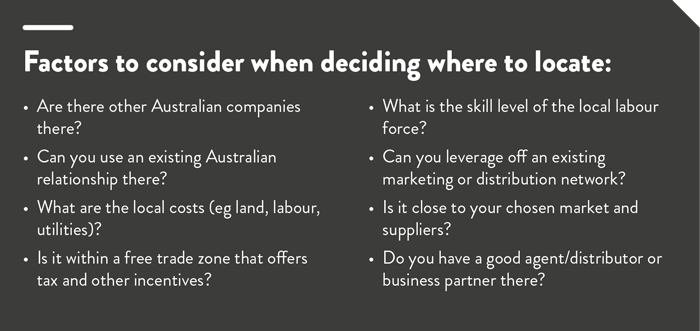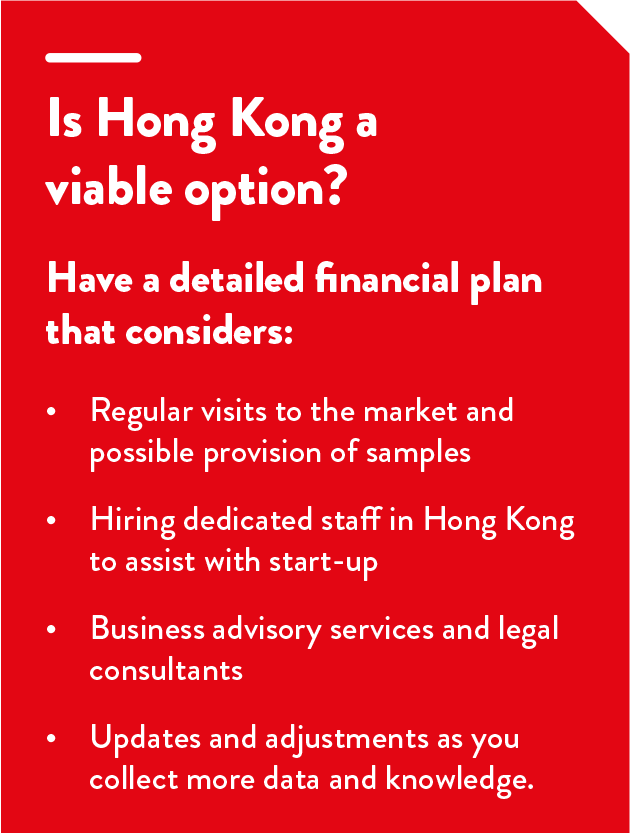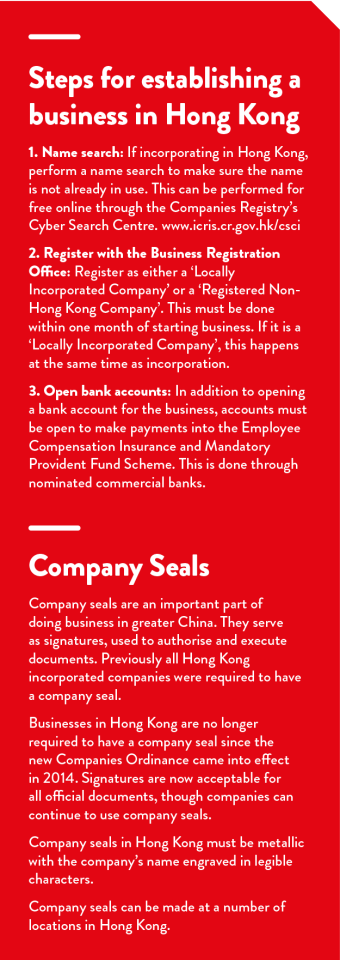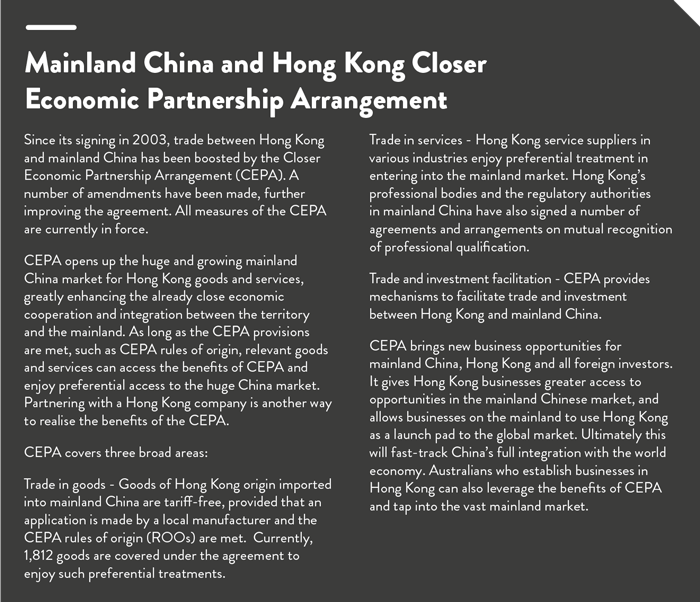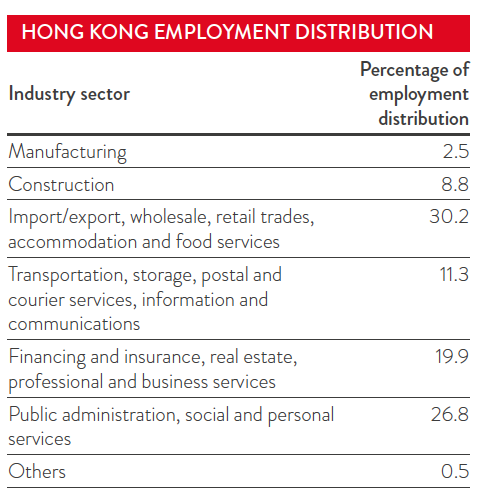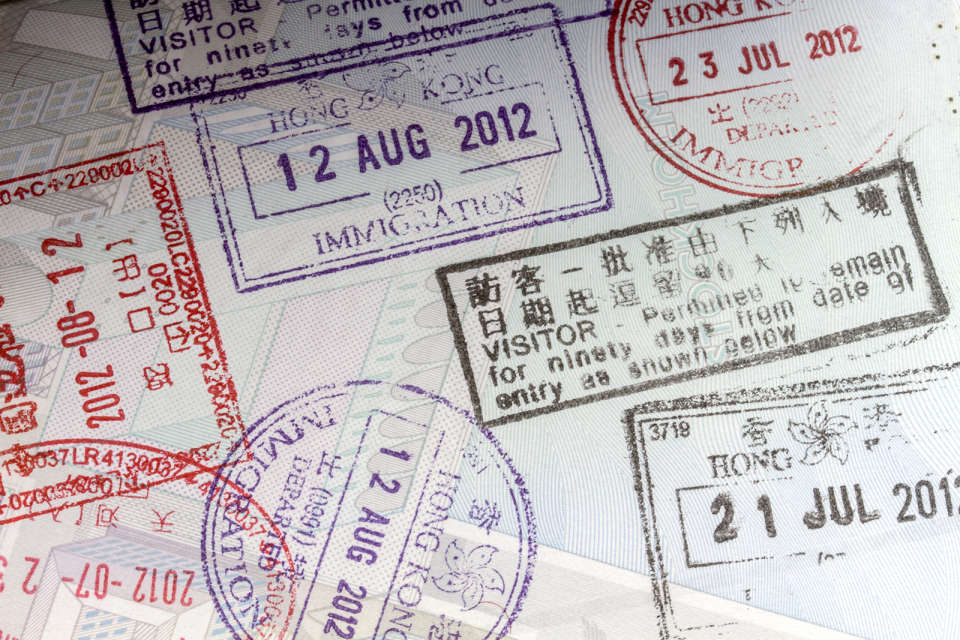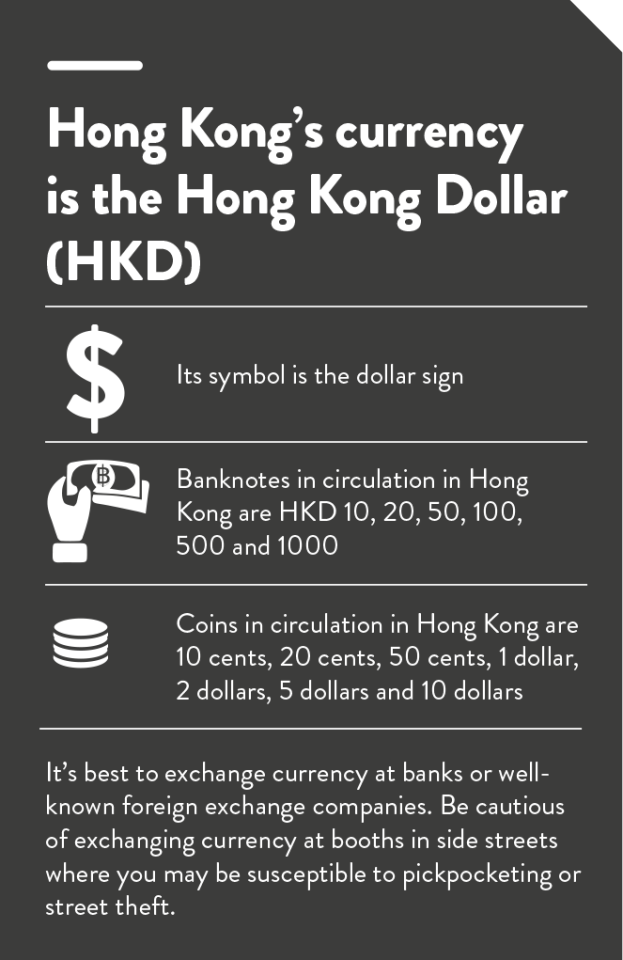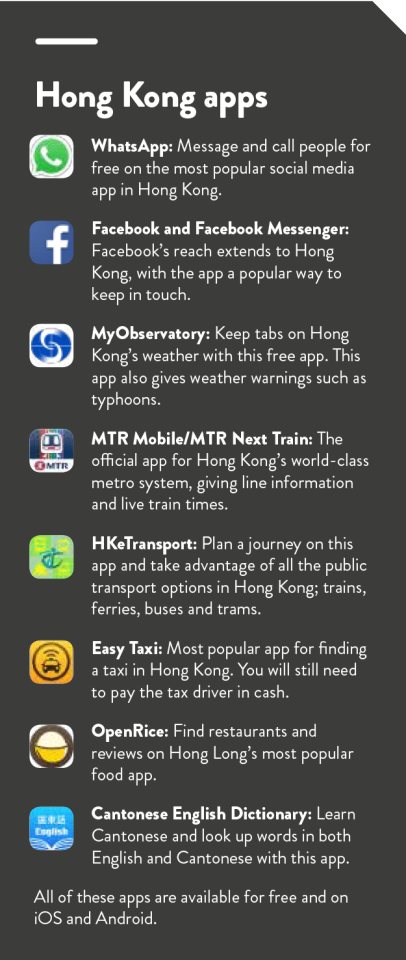1.2 Hong Kong at a glance
Geography
At the south-eastern tip of China, Hong Kong covers Hong Kong Island, Lantau Island, the Kowloon Peninsula and the New Territories, including 262 outlying islands. Between Hong Kong Island and the Kowloon Peninsula lies Victoria Harbour, one of the world's most renowned deep-water harbours. Its total area is 1104 square kilometres.
Climate
Hong Kong's climate is sub-tropical, tending towards temperate for nearly half the year. July is the hottest month in Hong Kong with an average temperature of 29°C, while January is coldest at 16°C. August is the wettest, with an average of 281 millimetres of rain. Typhoon season begins in May and ends in November.
History
Prior to the mid-19th century the area that is now Hong Kong was little more than a few fishing villages and a haunt for pirates. The area attracted the attention of British traders in the 1820s, who realised the commercial significance of a sheltered deep-water harbour astride the main trade routes of Asia.
As a result of its victory in the first and second Opium Wars (1832-42 and 1856-60), Britain gradually gained control of the area via a series of treaties and agreements. The Treaty of Nanjing (1842) ceded Hong Kong Island to Britain, then the Convention of Beijing (1860) gave it control of much of the Kowloon Peninsula. The New Territories, along with 235 islands, were leased by Britain from China in the Convention of 1898 for 99 years.
Hong Kong soon became an international, commercial city attracting Western and Chinese merchants alike. The growth in trade saw it become an important centre for financial services.
After Japanese occupation in the Second World War, Hong Kong reverted to British rule in 1945. The development of advanced manufacturing such as electronics helped Hong Kong become one of the first 'Asian Tiger' economies, enjoying annual growth rates of between 8 and 9 per cent in the 1970s and 1980s. It has more recently transitioned to a services-based economy including finance, logistics and insurance.
The British and Chinese governments started discussions on the future of Hong Kong in the late 1970s, and on 1 July 1997 Hong Kong Island, the Kowloon Peninsula and the New Territories were returned to China and became known as the Hong Kong Special Administrative Region (SAR).
Culture and communication
Hong Kong's contemporary culture is a unique blend of East and West. Around 90 per cent of Hong Kong's population is of Chinese descent, mostly of Cantonese ethnicity. The remainder consists of ethnic groups including those of British, Indian, Vietnamese and Pakistani descent. Most Hong Kong business people speak English fluently.
Hong Kong society is underpinned by traditional Chinese Confucian values, particularly in the importance of family, collectivism, relationships and the concept of 'face'. This roughly equates to a person's dignity, pride or social standing. Shaming and confronting people in front of others is not acceptable. Showing loyalty, respect for authority, age and hierarchy are all important.
As in many Asian cultures, relationships are crucial for business. It's important to Hong Kongers that they get to know you on a personal level.
The people of Hong Kong can be sensitive about being grouped and referred to as 'Chinese'. Having a very different modern history and political and socioeconomic values to the people of mainland China, they consider themselves to be from Hong Kong and refer to themselves as Hong Kongers (香港人). The connection to China has recently become an increasingly delicate topic amid growing political tensions.
Politics and government
Chief Executive
Hong Kong's 'executive-led' system of government is substantially inherited from the British colonial administration. The Chief Executive (CE) heads the government and is responsible for implementing the 'Basic Law' and other laws of the territory. The Chief Executive makes policy decisions and has the power to initiate legislation.
Legislative Council
The major functions of the Legislative Council (LegCo) are to enact laws, examine and approve budgetary matters, monitor the government's performance, and debate issues of public interest. It cannot initiate bills involving government expenditure and so has a limited role in policy development.
Economy
Hong Kong is consistently ranked as one of the most open economies in the world. It is a major international financial centre, a leading world trading entity and home to some of the region's most important corporate headquarters. The territory is a major provider of services to China and is the mainland's designated centre for the internationalisation of the renminbi.
Hong Kong's economic integration with mainland China developed through the 1980s with the establishment of China's first Special Economic Zone in Shenzhen. Since 2004, the China-Hong Kong Closer Economic Partnership Arrangement (CEPA) has accelerated integration between Hong Kong and the Pearl River Delta, giving favourable treatment to Hong Kong manufacturers and services.
Hong Kong's manufacturing sector has moved almost completely to the mainland since the 1980s, and services now dominate its economy, accounting for 92.5 per cent of GDP.
Forecast GDP growth for 2017 is just under 2 per cent, with growth averaging 2.7 per cent until 2020. Economic growth in China will continue to provide crucial support to the regional economy, while domestically, infrastructure projects will continue to support broader economic activity.
Legal system
Hong Kong's legal framework is based on common law and the independence of the judiciary. The territory's constitutional document, the Basic Law, ensures that Hong Kong will retain a free market economic system and a common law legal system until 2047.
Infrastructure
Hong Kong ranked third out of 140 economies in the World Economic Forum's Global Competiveness Index for quality of overall infrastructure.
Sea port: Hong Kong's port is the fifth busiest in the world.
Airport: Hong Kong International Airport (HKIA) is one of the world's busiest international airports, connecting to about 180 destinations and hosting more than 100 airlines.
Rail: Hong Kong is connected by rail to Shenzhen and Guangzhou in southern China, both major cities in the Pearl River Delta.
Roads: Hong Kong has a good road network and is connected to mainland China by a number of highways.
ICT: Hong Kong has well-developed ICT infrastructure with most of the territory covered by broadband and 3G networks.
Public transport: Hong Kong's public transport system is world-class: reliable, efficient and reasonably priced. Ninety per cent of the 12.6 million commuter trips made daily are on commercially operated buses, trams, trains, metro and ferries.
For more information, access the full Hong Kong Country Starter Pack




